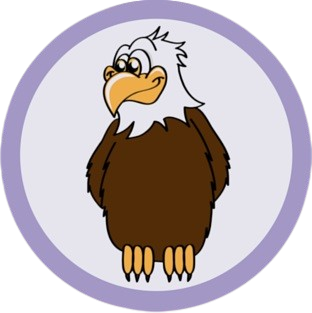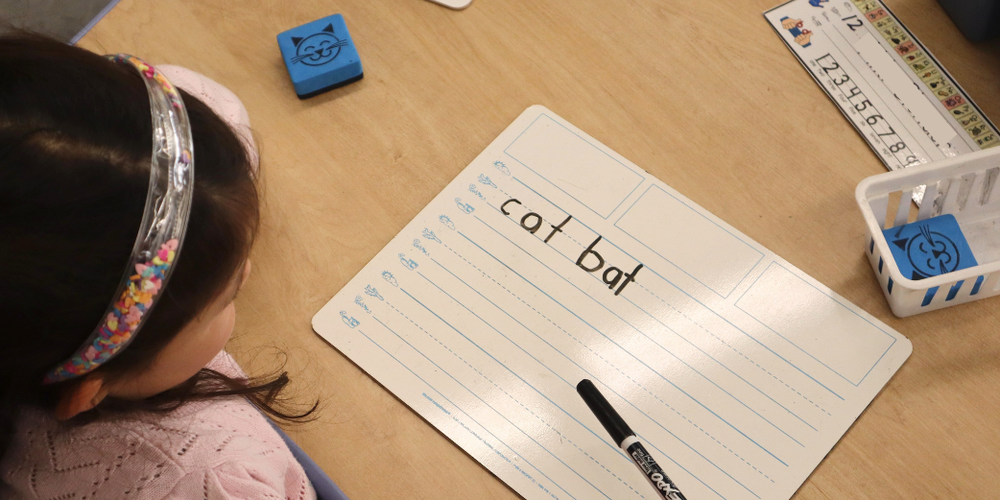It’s a big day in Lina Foncello’s kindergarten class. The students are writing independently, applying what they've learned about sounds and letters to spell new words!
“Mat,” the students say, echoing the word their teacher just said. “Tap it out,” she encourages, and small hands tap fingers on thumbs for each separate sound they hear.
They pick up their black markers and carefully write “mat” on placemat-sized white boards.
Foncello and her teaching assistant walk around the classroom, assisting and affirming.
“Great job!” said Foncello. “You’re ready for the next word. ‘Bat.’ Echo it back to me."
In Katonah-Lewisboro’s elementary schools, explicit word learning and phonics instruction are an important part of each day.
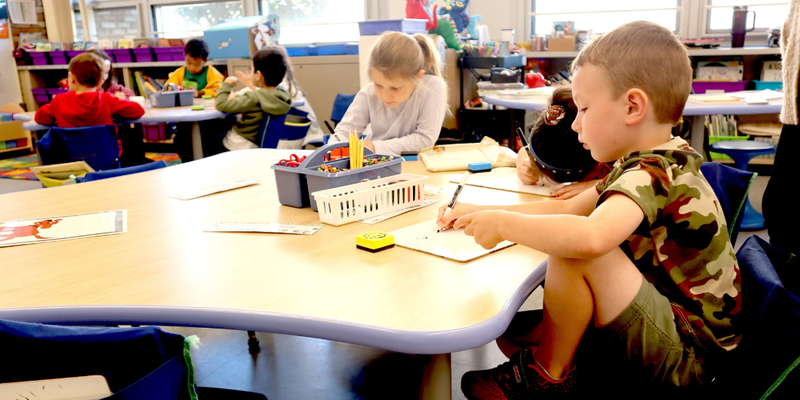
The District’s new Director of Learning, Maggie Konrad, speaks to Katonah-Lewisboro Schools' emphasis on research-based and systematic instruction in both phonemic awareness—hearing and working with sounds in words, and phonics—connecting sounds to letters.
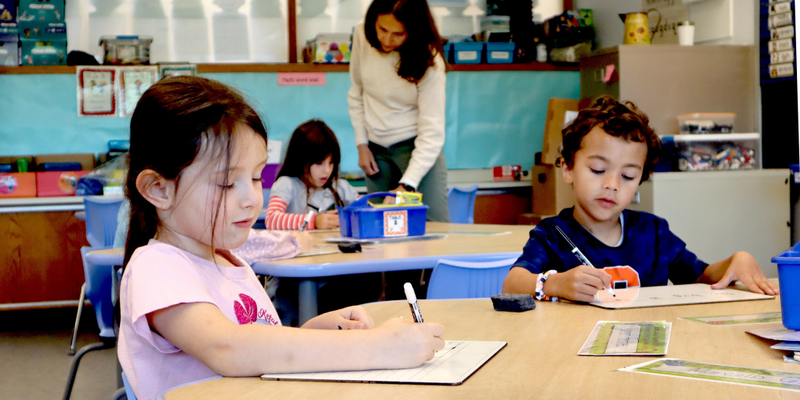
Just down the hall, first graders in Karin Kuczinski’s classroom are using sound cubes—small green pieces—to isolate words’ individual sounds, or phonemes.
“Jots,” said Kuczinski. “Before you sound it out, tell me what this word means.”
After a brief vocabulary discussion, the students place four green cubes on a paper grid and write the word on their white boards.
The lesson builds to full sentence dictation, bringing together students’ skills in listening, spelling, handwriting, sentence structure and more.
The bug is in the pot.
Ted had a quiz.
The first graders hold up their white boards, showing what they know.
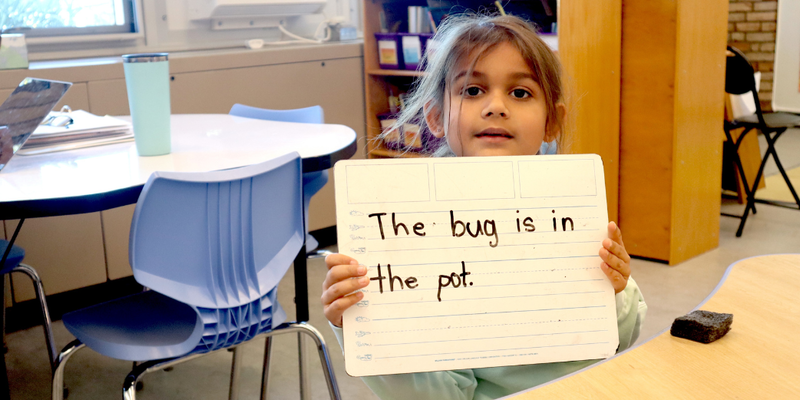
Elementary students across the District would return to word work the following day and each day throughout the school year, building skills that lead to fluent, confident reading and writing.
